Astana confirms Boom will start Tour de France
Team facing explusion from MPCC
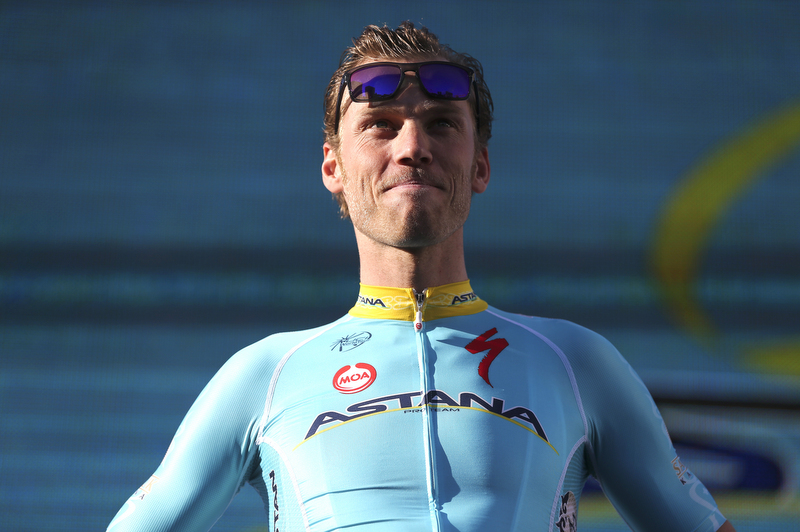
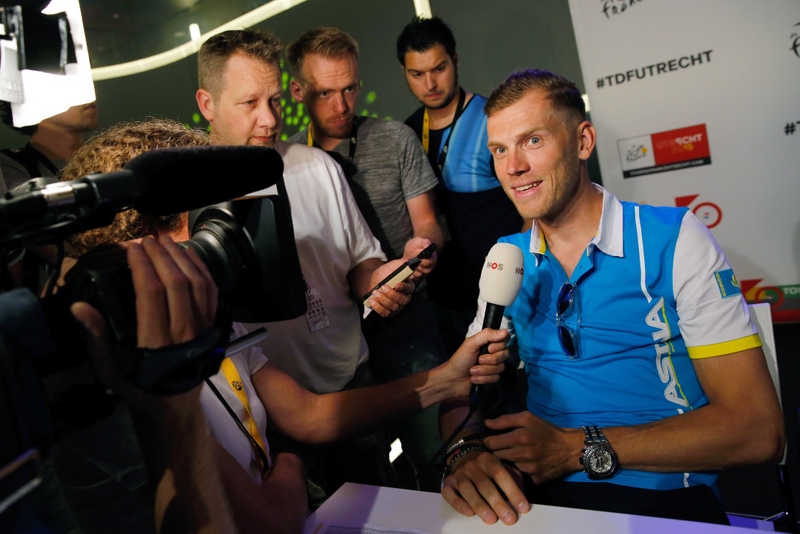
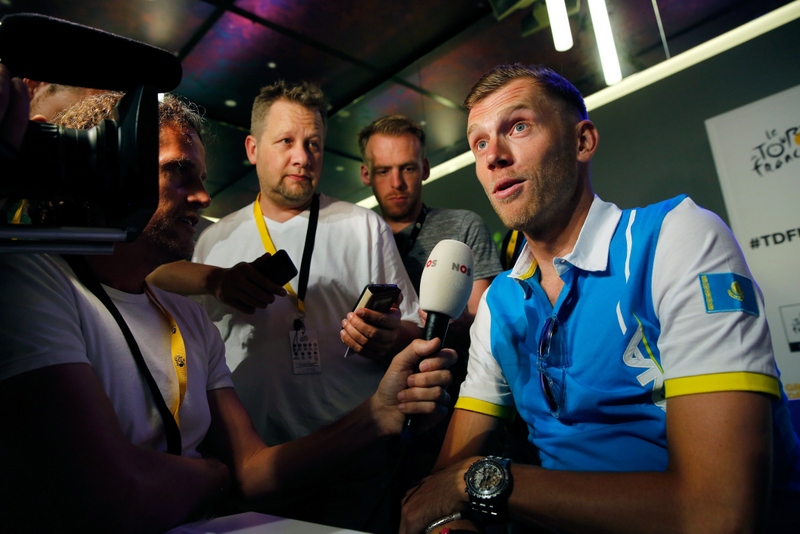
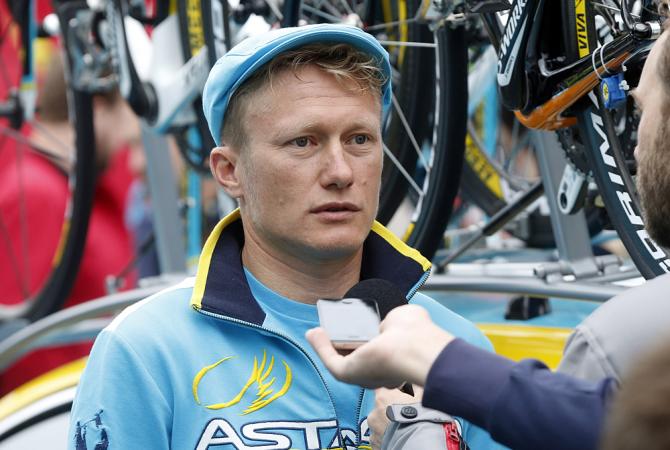
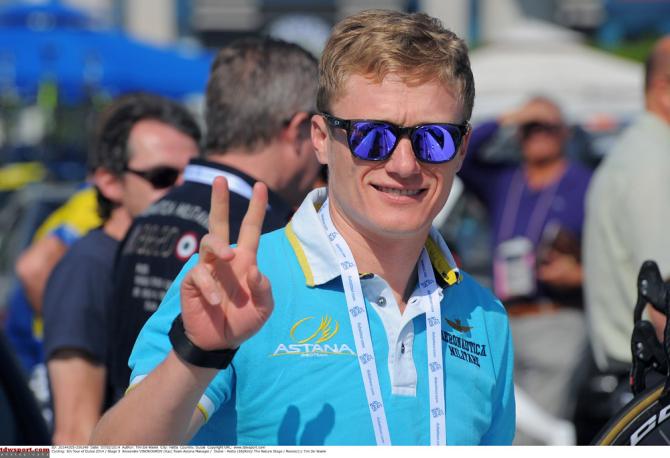
Astana team manager Alexandre Vinokourov has confirmed that Lars Boom will start the Tour de France despite failing a pre-race MPCC cortisol test.
He told a gathering of journalists the news as his riders prepared to go for a morning ride before this afternoon opening time trial of the Tour de France in Utrecht.
The Astana team was hoping that the UCI would allow them to replace the Dutchman with Alessandro Vanotti but with the sports governing body irremovable after confirming the official start list, Vinokourov has decided to disregard the rules of the MPCC (Movement for Credible Cycling) despite agreeing to be a member of the voluntary association that was created in the wake of a long series of doping scandals.
According to an official statement from the Astana team, the UCI said there were no valid grounds to allow an eventual late substitution because under UCI rules, the low cortisol level was not a risk to the riders' health.
"According to our medical team it (a low cortisol level) is not a danger to the rider's health and so he can start. That's clear. We're going to start with nine riders. We can't start with eight riders," L'Equipe reported Vinokourov as saying.
"The MPCC says we have to replace the rider in the case of a low cortisol level. We wanted to change the rider, Vanotti came to the Tour this morning to replace Boom but the UCI said no because you can't change a rider after the directeur sportif meeting (when rider names and numbers are confirmed). The meeting was held at 10:30 on Friday, the rider analysis arrived at 2:30pm."
The Astana team was already at the centre of a series of scandals after a number of riders failed anti-doping tests in 2014 and attempts this year by the UCI to revoke their WorldTour licence.
Get The Leadout Newsletter
The latest race content, interviews, features, reviews and expert buying guides, direct to your inbox!
Boom was selected as part of the Astana team to help 2014 winner Vincenzo Nibali on the cobbled fourth stage to Cambrai. Boom won the stage on the cobbles in 2014 while riding for the Belkin team.
The MPCC introduced blood cortisol level testing as a way to discourage the use of glucocorticosteroids and to keep overtrained riders from digging themselves a deeper hole. The anti-inflammatory drug can allow riders who are injured to continue racing without as much pain, but can cause further injury down the line. The use of the glucocorticosteroids suppress the body's production of cortisol, so low levels can be an indication of their use. Fatigue can also lower levels, as can several other conditions and allowed medications.
Boom was tested on Thursday morning as part of the usual pre-race tests carried by the UCI. However the UCI rules, in contrast to the MPCC rules do not include a mandatory eight-day stop from racing for low cortisol levels.
"I've been using an asthma puffer for ten years and I was sick after the Dauphine," Boom told the Dutch news agency NOS. "I do not have to worry, because I know there's nothing to worry about.
"I certainly do not do crazy things. I've always been one hundred percent against doping, nothing has changed."
LottoNL-Jumbo faced similar scenario as Astana ahead of the Giro d'Italia when George Bennett showed depressed cortisol levels prior to the race start. Bennett was kept out of the race, but later demonstrated that the reason for the values was the legitimate use of asthma medication, for which he had a therapeutic use exemption (TUE).
LottoNL-Jumbo later quit the MPCC, while Bardiani-CSF simply ignored the MPCC rules when one of their Giro d'Italia riders was found to also have depressed cortisol. The Italian team fielded a full team, claiming that the rider's cortisol level had returned to normal on the first day of the Giro d'Italia. The Italian team also decided to leave the MPCC.
Vinokourov's decision to allow Boom to start is likely to to spark the expulsion of the Astana team from the MPCC and lead to a barrage of criticism and accusations of double standards. Vinokourov avoided saying if the Astana team will quit the MPCC.
"I'll leave that decision to Roger (Legeay, the president of the MPCC). I have always supported the MPCC rules. Unfortunately the jurisdiction lies with the UCI and I can’t go against the rules."
"These are the MPCC rules but they have no legal value. It is the UCI that controls cycling. The rules are clear: he can start. We respect the rules of the UCI."
Vinokourov tried to widen the debate about low cortisol levels by including other major teams, who are not part of the MPCC.
"The low cortisol level is not a positive control. (Lars Boom) uses a (cortisone) spray for years. The analysis of the doctor is that the rider is in good health," he said.
"We've been a member of the MPCC for several years. I was even willing to stay last year after what happened (the team accepted to auto-suspended itself from racing after two riders tested positive for EPO)."
"I'd like other teams, such as Sky, BMC or Tinkoff to join us. We saw that some teams (Lampre-Merida, LottoNL-Jumbo) left but I don't want to leave. I'Il leave that decision to Roger (Legeay)."
Vino refuted the idea that it could damage the image of his team.
"I do not know results of other teams, maybe they are okay under the MPCC rules, perhaps they've for some abnormal levels too. The most important thing is that there is no danger to the rider. The UCI said that he can start, so we'll start with nine riders."